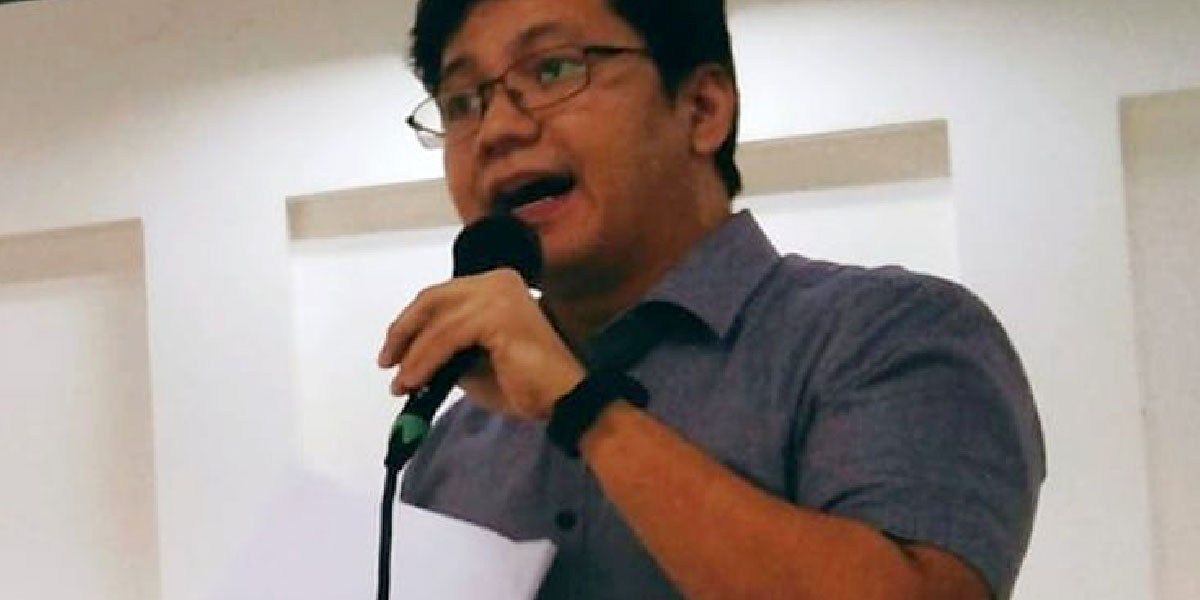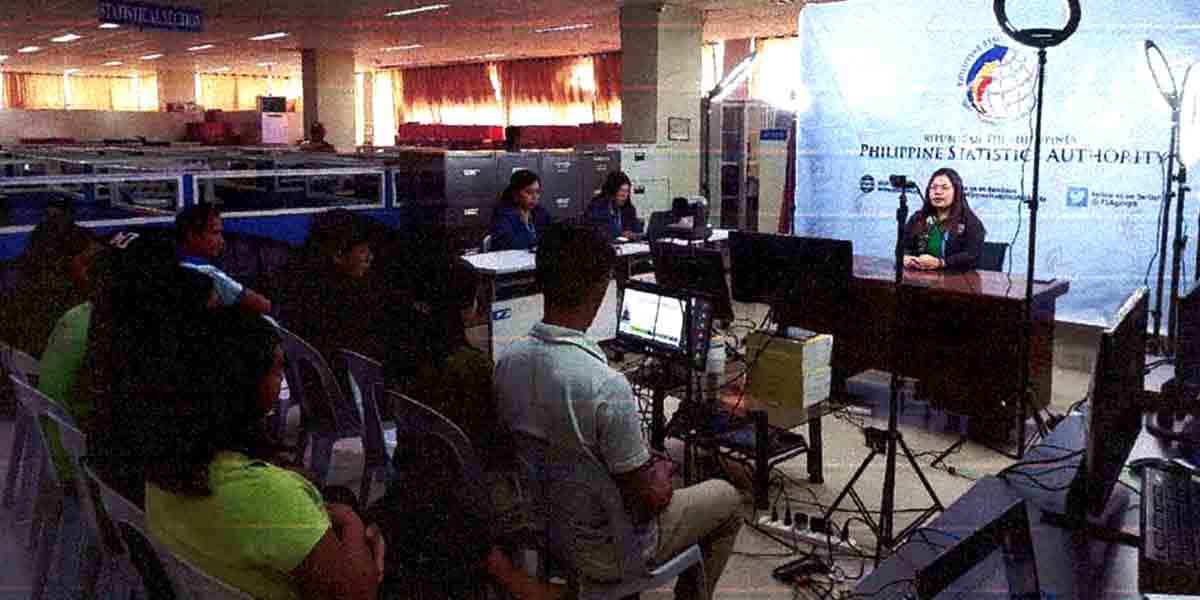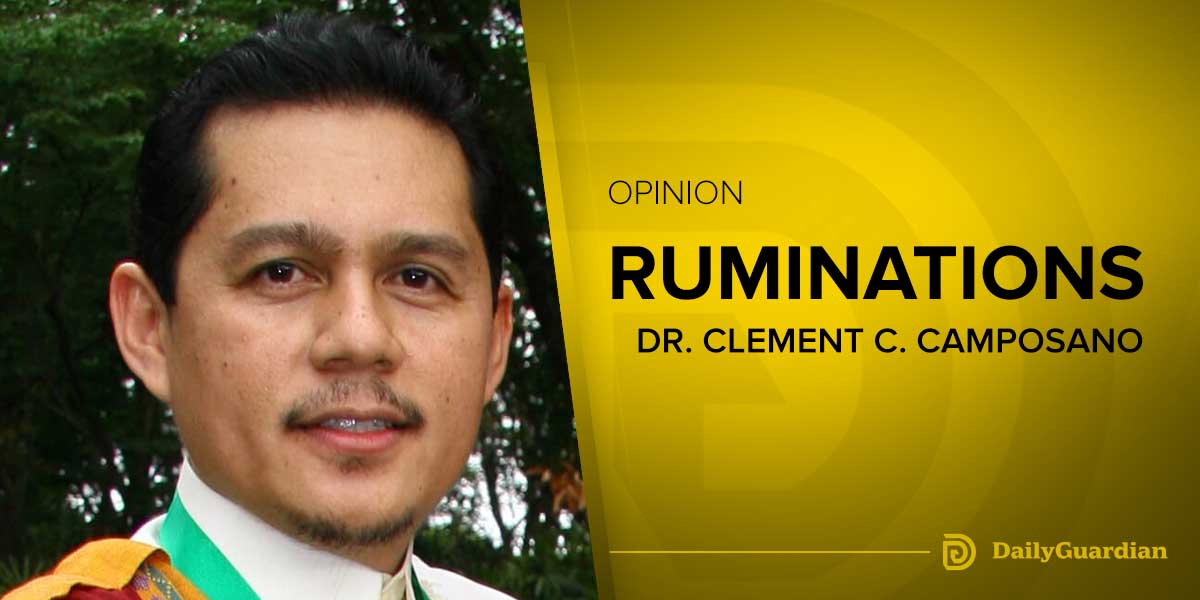
By Joseph B.A. Marzan
An Ilonggo lawyer on Wednesday who was stabbed in Iloilo City last March 2021 narrated what happened to him and called out state actors who allegedly perpetrated attacks against lawyers and human rights defenders.
Atty. Angelo Karlo Guillen was stabbed in the head with a screwdriver along General Luna Street in Iloilo City evening of March 3, 2021.
Guillen is the Secretary-General of the Panay Island chapter of the National Union of Peoples’ Lawyers (NUPL), and also the Assistant Vice President for Visayas of the organization’s national board.
He is also a counsel for various human rights defenders, progressive groups, workers’ unions, and indigenous peoples.
He has also been “red tagged” in recent years, as he was accused of being a sympathizer and recruiter of communist rebel groups.
The attack on Guillen prompted lawyers, law students, and concerned citizens to prod the Supreme Court to act on violence against lawyers and judges.
NUPL’s data as of April 27, 2021 indicated that since January 2011 to April 22, 2021, there have been 176 incidents of professional or work-related attacks against lawyers and judges, including 73 killings and 104 other forms of attacks or injuries.
During the 24-hour Rule of Law Webathon organized by the American Bar Association with the National Union of Peoples’ Lawyers as partner, Guillen appeared in a pre-recorded video message to discuss the alleged persecution of lawyers by state actors.
This was Guillen’s first physical appearance since the incident, but due to security reasons, his talk was recorded prior to the event.
He said that because of the NUPL’s clientele, they have been subject of attacks mainly by officials in the government, as well as surveillance and propaganda.
He cited instances where they had been denied access to their detained clients, despite the 1987 Constitution’s guarantee to the right to counsel. He also claimed that they were denied entry to locations where alleged human rights violations were being committed.
The NUPL has previously been named by several government agencies involved in counter-insurgency operations as a legal front of the Communist Party of the Philippines (CPP).
“These are the cases that we normally handle, and these are the clients we represent, and for that, we have found ourselves frequent targets of government attacks, surveillance, and black propaganda. This has prevented us from effectively performing our jobs as lawyers. All of this contributes to the lack of transparency on the part of government agencies in cases involving police and military operations,” Guillen said.
He expounded on the lack of transparency by law enforcement authorities, which he added was a “cause of concern” among human rights groups, especially in the enforcement of search and arrest warrants.
As an example, he mentioned several incidents involving the enforcement of search warrants that led to the deaths of several persons – the March 2019 massacre of 14 farmers in Negros Oriental, the Dec. 30, 2020 killing of 9 members of Tumandok indigenous people in Capiz, and the March 7 “Bloody Sunday” in the CALABARZON region which resulted in the deaths of 9 activists.
“Many civilians and activists have been arrested during these operations on what we believe to be fabricated charges of illegal possession of firearms and explosives. Eyewitness accounts of the planting of evidence and other forms of misconduct are abound in many of these cases, and it has become quite apparent that search warrants are being used as a pretext to carry out summary executions and mass arrests. The refusal of government agencies to provide access to official records and to disclose information related to these operations hinders the process of accountability,” he said.
Guillen then narrated what happened to him in March 2021, which police believed to be either a case of robbery or a work-related attack.
“On March 3 of this year, I was also the subject of an attack. As I was returning home from work, I was intercepted, chased down, and assaulted by two men in masks. They had two other accomplices on motorcycles which they later used as getaway vehicles. The assailants stabbed me repeatedly in the head and in the neck, and the last blow left the weapon embedded in the temporal area of the left side of my head. The assailants then left me for dead. Fortunately, I survived but I had to undergo surgery and spend all these three weeks in the hospital,” he narrated.
He challenged the police’s robbery angle saying that the incident was clearly related to his work.
He claimed that he and colleagues were under surveillance, particularly their houses and. He also cited the case of a witness in a human rights case he handled who was assassinated.
He also noted the killing of NUPL Negros Secretary-General Atty. Benjamin Ramos on Nov. 6, 2018 as an example.
“We know that the attacks against NUPL lawyers and other human rights workers are intended to prevent us from continuing with our work. It was only by some stroke of luck or happenstance that I survived the attack. Others, however, have not been as fortunate. These threats to our security and our lives are the challenges faced by human rights workers here,” he said.
He called on lawyers’ organizations worldwide to support the call for investigating human rights violations under the Duterte administration, calling them an “important step towards attaining accountability”.
The United Nations Human Rights Council (UNHRC) in July 2019 adopted a resolution asking the UN Office of the High Commissioner for Human Rights (OHCHR) to submit a report on June 2020 regarding the human rights situation in the Philippines.
UNHRC’s report was released on June 29, 2020, concluding that despite the “presence of legal, constitutional, and institutional human rights safeguards”, and the ongoing coronavirus disease 2019 (COVID-19) pandemic, human rights violations in the Philippines were still rampant in the first four months of 2020.
The report also made recommendations in the context of the national government’s campaign against illegal drugs, national security laws and policies, accountability, civic spaces, indigenous peoples, cooperation with the OHCHR and UN human rights mechanisms, and engagement by other countries and the UNHRC, among a few.
“We see the magnitude and frequency of these human rights violations, and the impunity with which they are being committed as crimes under international law. Other countries and international bodies and bar associations can help by condemning these attacks against civilians. We ask them to point out that the methods employed by police and military forces in its counter-insurgency operations fall short of acceptable standards under international law, that these methods violate international human rights and humanitarian law, especially in cases involving armed conflicts,” Guillen said.



















